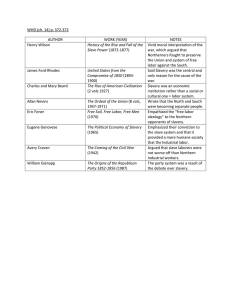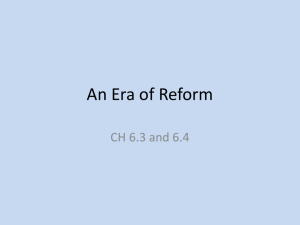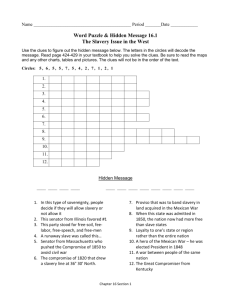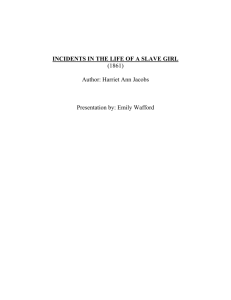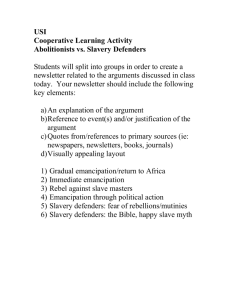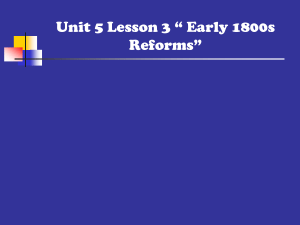TUSD CURRICULUM MAP—SOCIAL STUDIES
advertisement
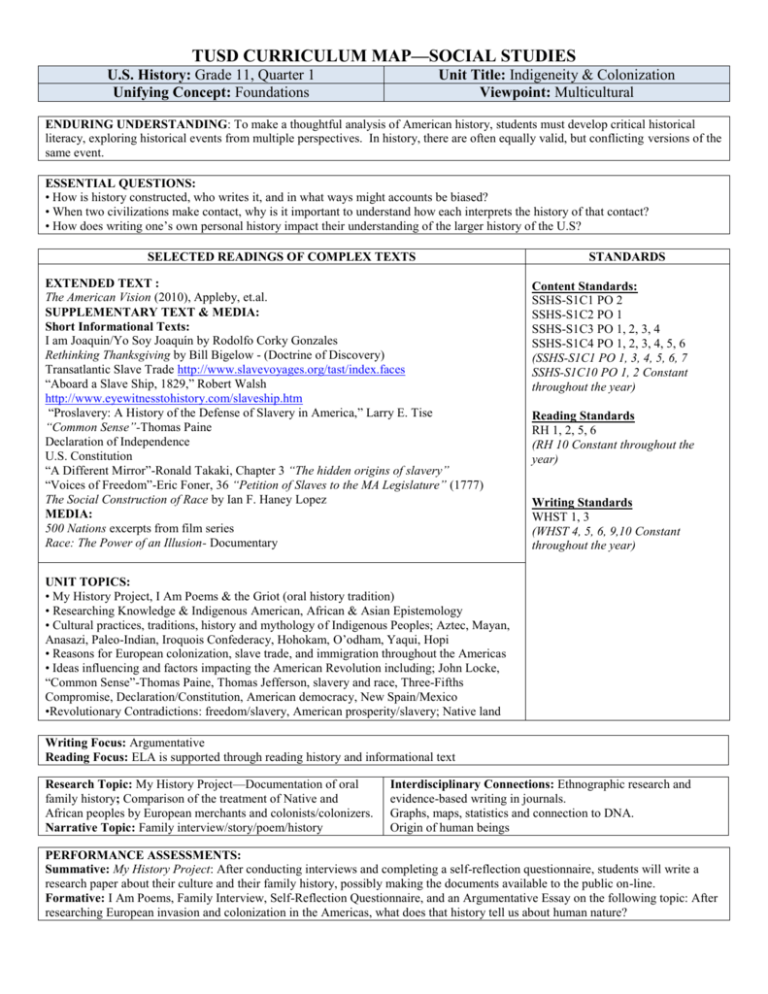
TUSD CURRICULUM MAP—SOCIAL STUDIES U.S. History: Grade 11, Quarter 1 Unifying Concept: Foundations Unit Title: Indigeneity & Colonization Viewpoint: Multicultural ENDURING UNDERSTANDING: To make a thoughtful analysis of American history, students must develop critical historical literacy, exploring historical events from multiple perspectives. In history, there are often equally valid, but conflicting versions of the same event. ESSENTIAL QUESTIONS: • How is history constructed, who writes it, and in what ways might accounts be biased? • When two civilizations make contact, why is it important to understand how each interprets the history of that contact? • How does writing one’s own personal history impact their understanding of the larger history of the U.S? SELECTED READINGS OF COMPLEX TEXTS EXTENDED TEXT : The American Vision (2010), Appleby, et.al. SUPPLEMENTARY TEXT & MEDIA: Short Informational Texts: I am Joaquin/Yo Soy Joaquín by Rodolfo Corky Gonzales Rethinking Thanksgiving by Bill Bigelow - (Doctrine of Discovery) Transatlantic Slave Trade http://www.slavevoyages.org/tast/index.faces “Aboard a Slave Ship, 1829,” Robert Walsh http://www.eyewitnesstohistory.com/slaveship.htm “Proslavery: A History of the Defense of Slavery in America,” Larry E. Tise “Common Sense”-Thomas Paine Declaration of Independence U.S. Constitution “A Different Mirror”-Ronald Takaki, Chapter 3 “The hidden origins of slavery” “Voices of Freedom”-Eric Foner, 36 “Petition of Slaves to the MA Legislature” (1777) The Social Construction of Race by Ian F. Haney Lopez MEDIA: 500 Nations excerpts from film series Race: The Power of an Illusion- Documentary STANDARDS Content Standards: SSHS-S1C1 PO 2 SSHS-S1C2 PO 1 SSHS-S1C3 PO 1, 2, 3, 4 SSHS-S1C4 PO 1, 2, 3, 4, 5, 6 (SSHS-S1C1 PO 1, 3, 4, 5, 6, 7 SSHS-S1C10 PO 1, 2 Constant throughout the year) Reading Standards RH 1, 2, 5, 6 (RH 10 Constant throughout the year) Writing Standards WHST 1, 3 (WHST 4, 5, 6, 9,10 Constant throughout the year) UNIT TOPICS: • My History Project, I Am Poems & the Griot (oral history tradition) • Researching Knowledge & Indigenous American, African & Asian Epistemology • Cultural practices, traditions, history and mythology of Indigenous Peoples; Aztec, Mayan, Anasazi, Paleo-Indian, Iroquois Confederacy, Hohokam, O’odham, Yaqui, Hopi • Reasons for European colonization, slave trade, and immigration throughout the Americas • Ideas influencing and factors impacting the American Revolution including; John Locke, “Common Sense”-Thomas Paine, Thomas Jefferson, slavery and race, Three-Fifths Compromise, Declaration/Constitution, American democracy, New Spain/Mexico •Revolutionary Contradictions: freedom/slavery, American prosperity/slavery; Native land Writing Focus: Argumentative Reading Focus: ELA is supported through reading history and informational text Research Topic: My History Project—Documentation of oral family history; Comparison of the treatment of Native and African peoples by European merchants and colonists/colonizers. Narrative Topic: Family interview/story/poem/history Interdisciplinary Connections: Ethnographic research and evidence-based writing in journals. Graphs, maps, statistics and connection to DNA. Origin of human beings PERFORMANCE ASSESSMENTS: Summative: My History Project: After conducting interviews and completing a self-reflection questionnaire, students will write a research paper about their culture and their family history, possibly making the documents available to the public on-line. Formative: I Am Poems, Family Interview, Self-Reflection Questionnaire, and an Argumentative Essay on the following topic: After researching European invasion and colonization in the Americas, what does that history tell us about human nature?
